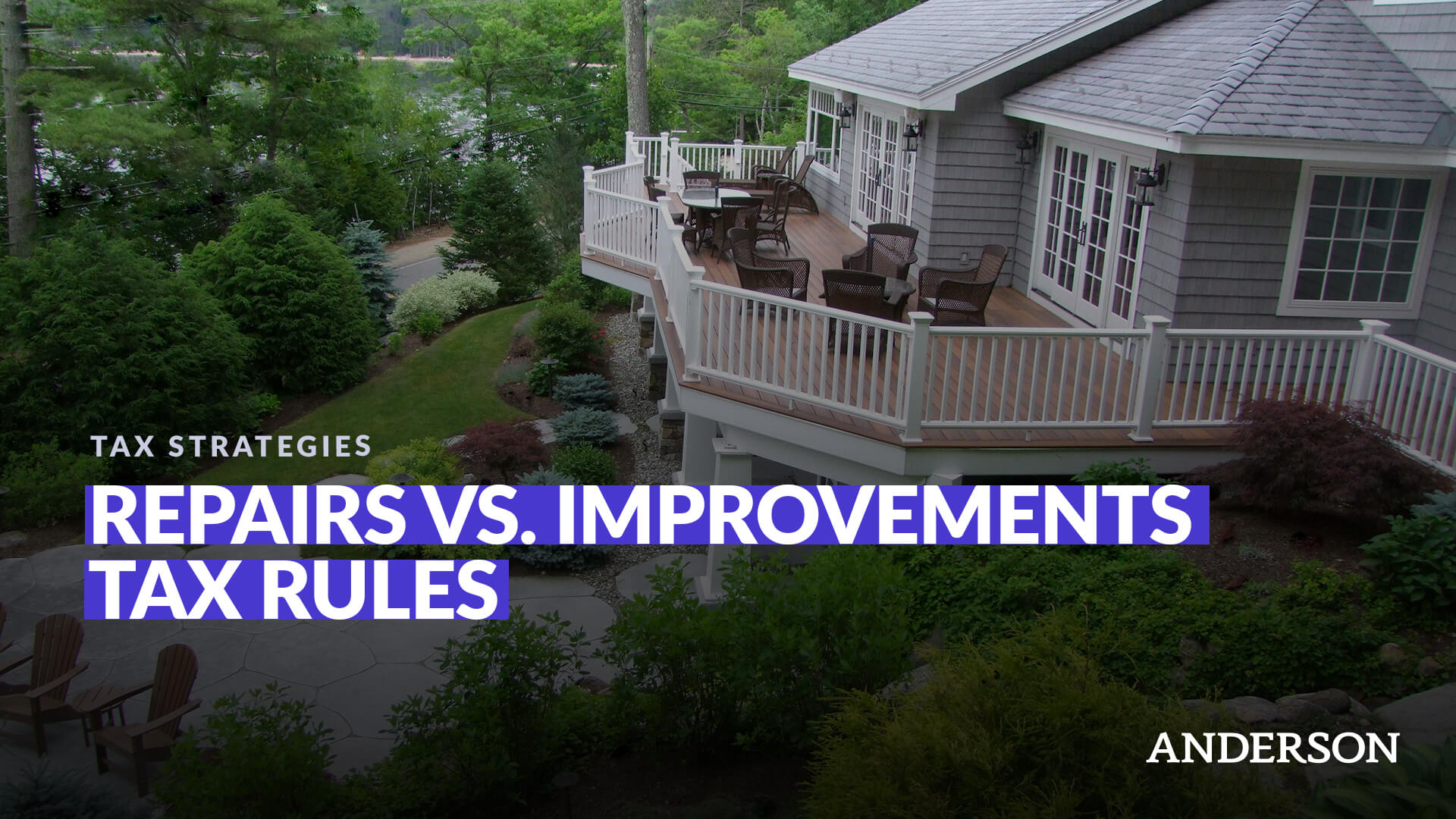Strategic tax planning isn’t just important for real estate investors—it’s essential for long-term wealth building. The most successful investors don’t wait until tax season to think about deductions or write-offs. They use proven tax strategies year-round to legally defer, reduce, and even eliminate taxes on rental income, capital gains, and investment profits.
With the right approach, you can avoid tax on the sale of property, eliminate—or at least lessen tax on rental property income, and accelerate your overall returns. Best of all, these aren’t loopholes or aggressive schemes. They’re intentional incentives built into the U.S. tax code to encourage real estate investment, growth, and economic contribution.
If you’re serious about protecting your income and growing your portfolio tax-efficiently, here are 10 of the most powerful strategies to start using now:
Use depreciation through cost segregation
Defer taxes via 1031 Exchanges
Qualify as a Real Estate Professional
Leverage short-term rental classification
Donate appreciated property
Use LLCs and corporations
Max out retirement contributions
Borrow against life insurance
Invest in tax-efficient funds
Earn tax-free interest via municipal bonds
Whether you’re a seasoned investor or just getting started, this guide will show you how to eliminate taxes on real estate investments.
Want the full breakdown with examples? Watch now.
1. Tax-Deferred Investing: Buy, Borrow, Transfer
The cornerstone of advanced tax planning is deferring taxes as long as possible. Wealthy investors often follow the “Buy, Borrow, Transfer” strategy:
Buy appreciating assets (like real estate)
Borrow against those assets instead of selling
Transfer assets to heirs with a step-up in cost basis
This allows them to access capital without triggering taxes. By not selling the asset, no taxable event occurs. And when the property is eventually passed on, the heirs receive it at the current market value, allowing them to avoid paying capital gains tax on the asset’s lifetime appreciation.
2. Cost Segregation and Bonus Depreciation
Depreciation deductions are the real estate investor’s secret weapon. The IRS lets you write-off the wear and tear of your property, reducing your taxable income even if you’re cash flow positive.
Here’s how real estate investors amplify this benefit:
Cost Segregation Studies: These are engineered analyses that break down a building’s components into asset classes with shorter lifespans. Instead of depreciating everything over 27.5 years (residential) or 39 years (commercial), cost segregation lets you carve out certain parts of the property—like carpet, cabinets, appliances, plumbing, and landscaping—and depreciate them over 5, 7, or 15 years. This front-loads your deductions and maximizes tax savings in the early years of ownership.
Bonus Depreciation: Once cost segregation identifies short-life assets, bonus depreciation lets you write-off a large portion of those items in the first year. The Tax Cuts and Jobs Act of 2017 temporarily increased bonus depreciation to 100% for qualified property placed in service after September 27, 2017. This percentage is now phasing down—dropping to 60% in 2025—and is scheduled to fully expire by 2027 unless Congress intervenes. This makes now a critical window for real estate investors to capture accelerated deductions before the benefit diminishes further.
These strategies generate what are known as paper losses—deductions that reduce your taxable income without impacting your actual cash flow.
If you qualify as a Real Estate Professional (REP) or use short-term rental (STR) status, those paper losses can go even further by offsetting your W-2 or business income, not just rental income. This is one of the most powerful tax benefits available to real estate investors.
Request a free consultation with an Anderson Advisor
At Anderson Business Advisors, we’ve helped thousands of real estate investors avoid costly mistakes and navigate the complexities of asset protection, estate planning, and tax planning. In a free 45-minute consultation, our experts will provide personalized guidance to help you protect your assets, minimize risks, and maximize your financial benefits. ($750 Value)
3. The Power of 1031 Exchanges
A 1031 Exchange lets you defer capital gains taxes and depreciation recapture by reinvesting proceeds from a property sale into another like-kind property—tax-free at the time of sale.
What you can do:
Sell 1, buy 10 to diversify
Sell 10, buy 1 to consolidate
Keep rolling over gains from the sale indefinitely
Rules to follow:
Identify a new property within 45 days
Close within 180 days
Use a Qualified Intermediary
When done right, this strategy can be repeated for life. And when you pass, your heirs get a step-up in cost basis, eliminating the deferred taxes.
For serious investors, 1031 Exchanges are a key wealth-building and tax-deferral tool.
4. Real Estate Professional Status (REPS)
Real Estate Professional Status allows you to use real estate losses to offset active income, like W-2 wages or business earnings, not just passive income.
To qualify, you must:
Spend 750+ hours/year on real estate activities
Work more hours in real estate than in any other job
Qualifying work includes property development, management, leasing, and more.
This status is especially valuable for high earners (e.g., doctors, attorneys) looking to reduce taxes. When combined with cost segregation and bonus depreciation, REPS can offset six figures in income annually.
5. Short-Term Rentals (STR) Loophole
Even without REPS, you can offset active income using the Short-Term Rental (STR) loophole—a lesser-known tax strategy.
If your property’s average rental period is 7 days or less, the IRS treats it as an active business, not a passive one. That means losses from depreciation, cost segregation, and bonus depreciation can offset W-2 or business income.
Requirements:
You must materially participate, such as handling bookings, guest communication, maintenance, or pricing.
Ideal for:
Airbnb/VRBO hosts
Vacation rental investors
High earners wanting major deductions without leaving their day job
Done right, STRs can create powerful tax savings with short hold times.
6. Charitable Giving and Real Estate
Want to double-dip your real estate deductions and give back at the same time? Charitable giving provides a legitimate way to eliminate capital gains, receive a large tax deduction, and align your investments with your values.
Here’s how it works:
Donate appreciated real estate to a qualified 501(c)(3) organization
Receive a charitable deduction for the fair market value of the property
Avoid capital gains tax on the appreciation
You can deduct up to 60% of your adjusted gross income (AGI) using charitable contributions.
For even greater control, investors often:
Bottom line: For tax purposes, charitable giving is one of the most under-utilized strategies, but the benefits can’t be beat. Your donations can help the community while offering you major tax benefits.
7. Leveraging Legal Structures for Asset Protection and Savings
Your business structure isn’t just a formality—it determines your tax bill, audit risk, and liability exposure. Wealthy investors know this and use legal entities to achieve both tax efficiency and protection.
Sole proprietors, unfortunately, face the worst of all worlds:
High audit risk (8x more likely than S-Corps)
No liability protection
Limited tax planning options
Here’s how savvy investors fix that:
LLCs: Ideal for holding rental properties; separates business risk from personal assets.
S-Corporations: Reduce self-employment tax by paying yourself a reasonable salary and taking the rest as distributions.
C-Corporations: Flat 21% tax rate, useful for high-income earners reinvesting in their business.
Family Offices: Manage multiple entities under a single strategic umbrella for advanced planning.
Proper structure leads to lower taxes, better compliance, and protection from lawsuits or liability claims. It’s a foundational move for scaling safely and sustainably.
8. Using Retirement Accounts and Defined Benefit Plans
Most people are familiar with traditional IRAs, Roth IRAs, or 401(k)s, but the wealthy go far beyond the basics. They leverage advanced retirement vehicles to defer large amounts of income and compound tax-exempt growth.
Here are three common retirement structures used by high-income investors:
Solo 401(k): Ideal for self-employed individuals or small business owners with no full-time employees. You can contribute as both employer and employee, potentially saving over $60,000 per tax year.
SEP IRA: A flexible, easy-to-administer plan that allows contributions of up to 25% of compensation (up to $70,000 in 2025).
Defined Benefit Plans: These are pension-like plans based on actuarial calculations and can allow six-figure contributions annually. They’re ideal for high earners nearing retirement age. Some professionals contribute $200,000 to $300,000+ per year, creating massive deductions.
These contributions not only reduce your taxable income now, but also let your investments grow tax-deferred until retirement, when you’re likely in a lower tax bracket. That means more money compounding over time and less paid to the IRS.
9. Life Insurance: Tax-Free Access to Capital
Cash value life insurance isn’t just about providing a death benefit—it’s a financial tool that can generate tax-free liquidity during your lifetime.
Here’s how it works:
You contribute premiums into a permanent life insurance policy (like Whole Life or Indexed Universal Life)
Over time, the policy builds cash value that grows tax-deferred
You can borrow against the cash value tax-free, with no income restrictions, credit checks, or approval process
Used properly, this becomes a private banking system where your money is compounding inside the policy while you deploy borrowed funds elsewhere—such as into more real estate, business expansion, or even passive income streams.
When you pass away, the death benefit pays out tax-free, and if structured well, repays any outstanding loans without tax consequences.
High-net-worth families have used life insurance to:
Avoid estate taxes
Create generational wealth
Maintain liquidity without selling off appreciating assets
It’s not for everyone, but when customized correctly by a fiduciary advisor, life insurance is one of the most underrated tax shelters available.
10. Investing in Tax-Efficient Funds
Tax efficiency isn’t just about deductions—it’s a long-term investment strategy designed to reduce tax drag and maximize after-tax returns. Smart investors know that it’s not what you earn, but what you keep that builds lasting wealth.
Here are three powerful vehicles to consider:
Municipal Bonds: Issued by states and cities, these provide tax-free interest at the federal level (and sometimes state). They’re a strong choice for high-income earners seeking stable, tax-efficient income.
Oil & Gas Partnerships: These can generate large upfront tax deductions—often 70% to 90% of your investment—thanks to intangible drilling costs (IDCs). In some cases, they can even offset active income, not just passive.
Dividend-Paying Stocks and ETFs: When structured around qualified dividends, these are taxed at favorable long-term capital gains rates (0% to 20%) instead of higher ordinary income rates. Some funds also use strategies like covered calls to further enhance after-tax income.
But advanced investors don’t stop at fund selection—they also focus on asset location. That means placing tax-efficient investments in taxable accounts, and holding high-growth or income-generating assets (like real estate or actively traded funds) inside tax-deferred or tax-free accounts like IRAs or Roths.
The goal? Lessen tax on investment income, minimize exposure to short-term capital gains, and create a smoother path to compounding wealth.
This level of intentional planning—pairing smart asset selection with thoughtful placement—is what separates casual investors from true wealth builders.
Maximize Wealth, Minimize Taxes Real estate is a powerful wealth-building strategy, but it comes with hefty tax burdens if not matched with the right tax plan for real estate investors. With tools like cost segregation, 1031 Exchanges, REPS, STRs, and smart legal structures, you can grow your portfolio with little to no tax burden. Want to build a tax plan to help you invest in real estate? Schedule your FREE 45-minute Strategy Session with a Senior Advisor today and get a custom plan for your situation.



























